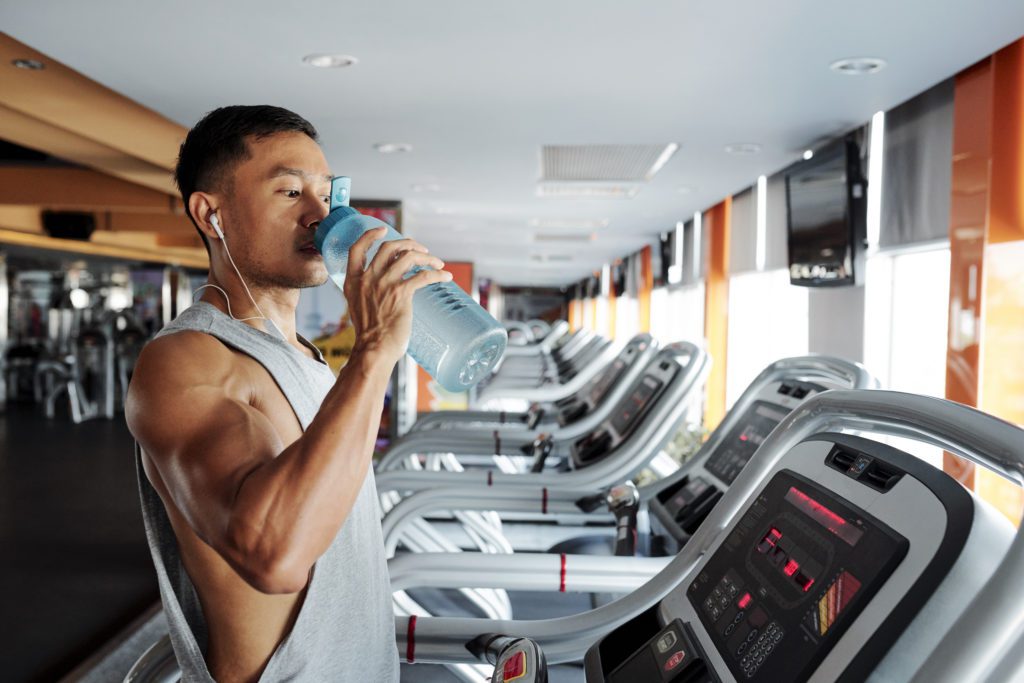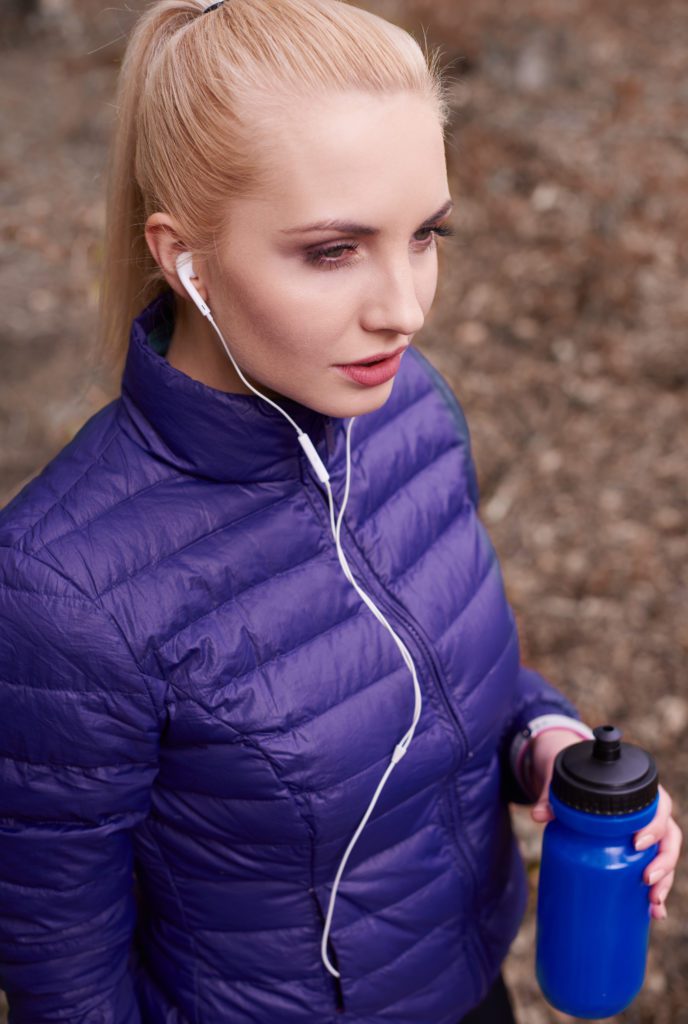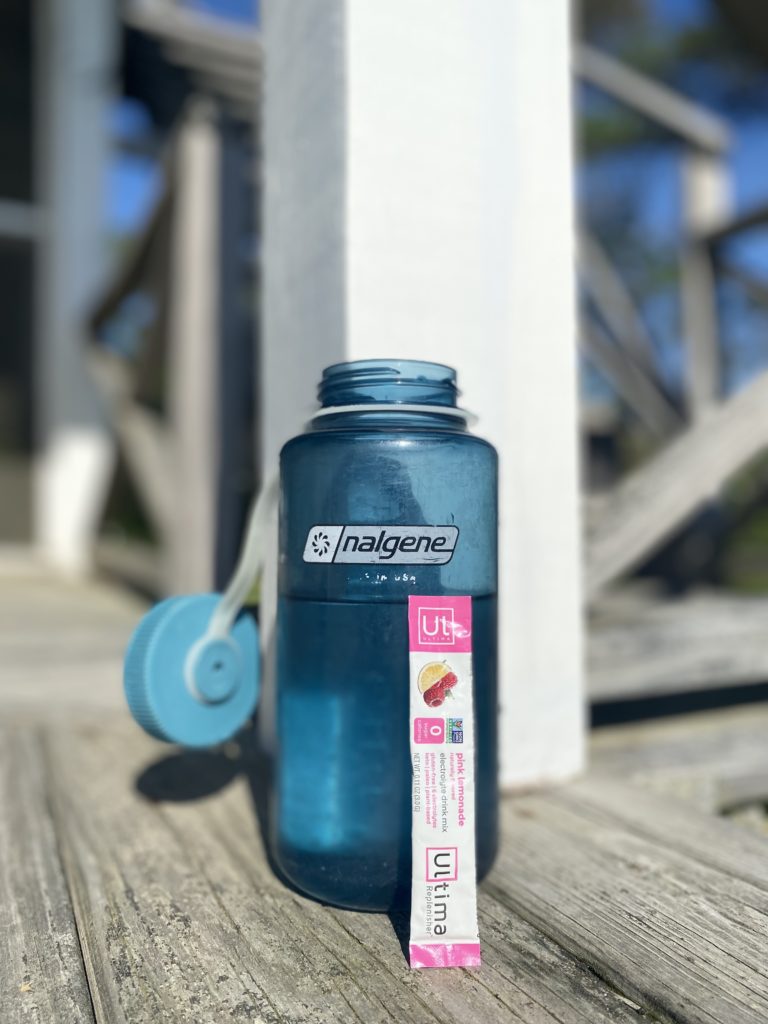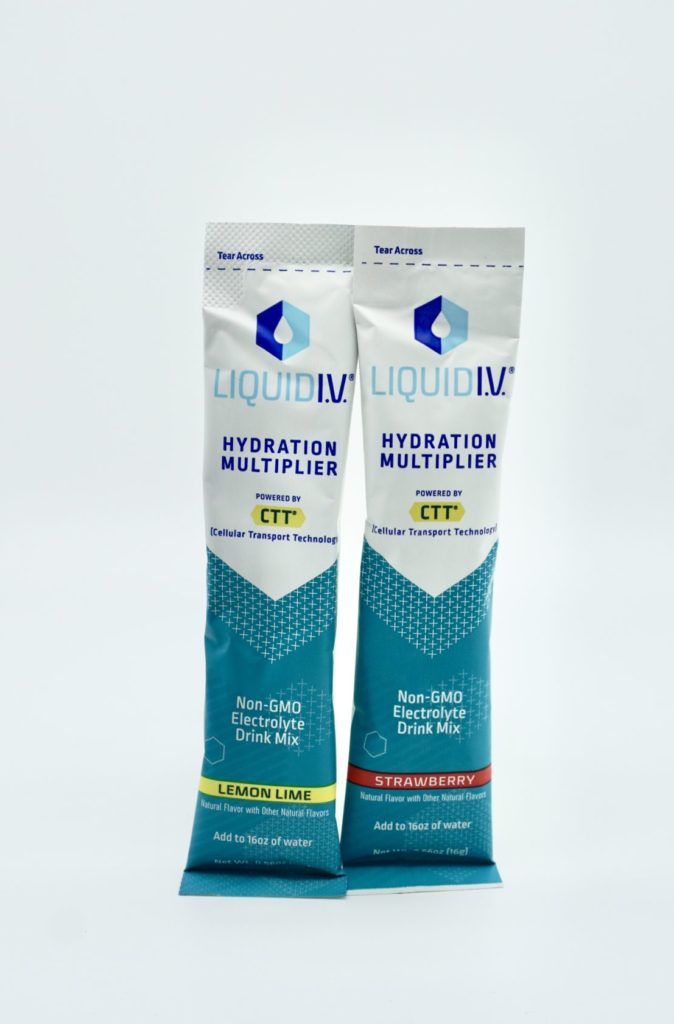Optimal hydration is a moving target. recommendations for daily water intake vary among sources and need to be adjusted depending on lifestyle factors such as activity levels. Even so, with a basic understanding of the science of hydration, narrowing in on a personal hydration strategy is a realistic goal.
How much water should I drink everyday?
An average male requires 3.7 liters of fluids per day and an average female requires 2.7 liters according to a U.S. National Academies of Sciences, Engineering, and Medicine report 1. This equates to 15.6 and 11.4 cups, respectively.
Unlike some other sources, this report provides a recommendation for total fluid intake, beyond just water, acknowledging that hydration can be met through other sources such as juice, milk, tea and vegetables. This same report outlines that 20% of total fluid intake usually comes from everyday food such as lettuce and watermelon1 which makes sense considering both of these are over 90% water. Measuring hydration in terms of “glasses of water” fails to account for all the other ways we stay hydrated.
The National Academies also recommends 3.8 grams salt per day. While it may not be commonly thought of as a key ingredient to hydration, sodium chloride, better known as table salt, is a critical component. Salt is a required component in the absorption process that takes place in the intestines. To learn more check out this article that dives deeper into this topic.

Should I use hydration supplments?
Arguably the most intriguing part of the report outlines the finding that the majority of people meet their daily hydration needs by listening to their thirst. Similarly, the recommended salt intake is easily achieved through a normal Western diet. With those statements in mind, is the answer to the question of optimal hydration simply “listen to your body and eat a balanced diet?
Before you make the decision to stop using hydration supplements, consider that other studies have found thirst is relatively insensitive during exercise2. The mechanism that keeps you on track to stay hydrated while working on your computer all day is not as effective when you’re running around on the soccer field or mowing the lawn on a hot day.
What happens when you are dehydrated?
Dehydration, defined as a fluid loss equivalent to 2-3% of body mass, can render real physiological changes. At a cognitive level, 2% dehydration is found to impair attention and immediate memory among other measures3. Significant decreases in physical performance from dehydration have also been consistently recorded in the scientific studies. In one study, dehydrated participants had a decrease in performance power while simultaneously experiencing an increase in heart rate. Those included in the study that had a high baseline fitness fared slightly better but still experienced drops in performance4.

Recommendations for optimal hydration
As we’ve learned, staying hydrated can be inherently challenging during physical activities and the consequences of dehydration are tolling on the mind and body. This is where we see the benefit of using hydration products. Drinks containing sodium, chloride and glucose help the body absorb water more quickly and recover from dehydration faster than plain water, especially if there is already a deficit of these minerals. Some of the top tactics for staying hydrated during exercise include:
- Remember to hydrate before any event that will induce heavy sweating.
- Keep a water bottle on hand and take frequent sips, especially in hot conditions.
- Keep track of your urine color. Darker urine usually indicates more dehydration. According to UC San Diego Health, pale straw color urine correlates to a hydrated state5.
- Supplement with hydration products that contain sodium chloride, other electrolytes and glucose.
In summary, optimal hydration may be easy while sedentary, but it requires a more intentional practice when exercising. Follow the steps outlined above and learn to recognize the symptoms of dehydration6. Please exercise caution and consult with your doctor for advice that is specific to your physiology.
References
1Institute of Medicine. 2005. Dietary Reference Intakes for Water, Potassium, Sodium, Chloride, and Sulfate. Washington, DC: The National Academies Press. https://doi.org/10.17226/10925.
2Belval LN, Hosokawa Y, Casa DJ, et al. Practical Hydration Solutions for Sports. Nutrients. 2019;11(7):1550. Published 2019 Jul 9. doi:10.3390/nu11071550
3“Adan A. Cognitive performance and dehydration. J Am Coll Nutr. 2012;31(2):71-78. doi:10.1080/07315724.2012.10720011
4Merry TL, Ainslie PN, Cotter JD. Effects of aerobic fitness on hypohydration-induced physiological strain and exercise impairment. Acta Physiol (Oxf). 2010;198(2):179-190.
5LaFee, Scott. “10 Colors That Suggest Urine Trouble.” UC Health – UC San Diego, 21 Apr. 2014, health.ucsd.edu/news/features/pages/2014-04-21-colors-that-suggest-urine-trouble.aspx.
6“Mayo Clinic Staff. “Dehydration – Symptoms and Causes.” Mayo Clinic, 19 Sept. 2019, www.mayoclinic.org/diseases-conditions/dehydration/symptoms-causes/syc-20354086.



